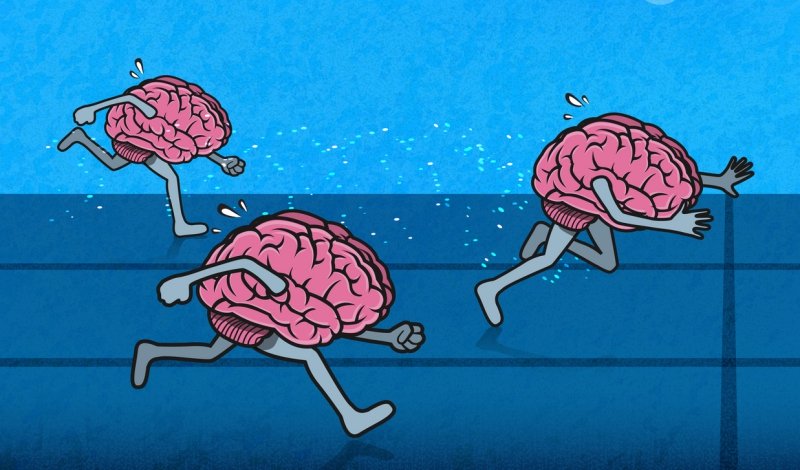
According to a Princeton National Health and Wellness Survey, 37 percent of U.S. adults reported insomnia or sleep difficulties in the past twelve months. Between 40 percent and 60 percent of people over the age of 60 suffer from insomnia. Two million children suffer from sleep disorders. More than ten million people in America use sleep aid medication to deal with their insomnia. Fifty-five percent of all adults report having problems with insomnia in their lifetime. More than 70 million Americans suffer from various sleeping disorders and 60 percent of those 70 million report severe sleeping disorders.

What’s going on here?
For the most part what is going on is a simple, straightforward thing. Our brain is racing to deal with life, brooding about today, troubled about yesterday, worried about tomorrow, and it is still racing when we try to go to sleep. Our brain has a job to do, to protect us and to serve us, and it will continue to do that job irrespective of our wish to sleep. Our ability to think, the quality that distinguishes us from other creatures, may have been designed by nature to protect us and to serve us but, as one of nature’s many unintended consequences, our ability to think also imperils us.
If, to make an analogy, you knew that a campfire would keep away the wolves, you would learn how to keep your campfire burning throughout the night so that you could both get some sleep and keep the wolves away. And what if in your sleep you heard wolves approaching or the campfire sputtering? You would wake up abruptly and check to make sure that the fire was still burning. If it had nearly gone out you would rebuild it. You would pay attention to that campfire because your life depended on it. That is natural, sensible, and straightforward.
What if the threat isn’t wolves but a risky investment, a chronic illness, an alcoholic child, an infuriating job, a difficult choice, a vexing problem, a treacherous mate, an edict against your group, a threat to your identity, a threat to your ego, or a meaning threat? What then? Well, you will turn to your brain. The tool that we use to deal with threats of that sort is our brain. Our brain broods, problem-solves, calculates, obsesses, stews, and races in our service. It will do that day or night: it is indifferent to the fact that the earth is rotating or that we need our sleep.
It is odd that we have failed to realize the extent to which our need to rely on our thinking to survive will naturally produce insomnia. If you are stewing about something that is your brain stewing: what else could be stewing? If you are hatching a plan or preparing a retort that is your brain hatching and preparing. If you are sad about life and rehashing your grievances, that is your brain engaged in the rehashing. And that stewing, hatching, preparing and rehashing is entirely likely to keep you awake, just as keeping an ear peeled for wolves, sputtering fires, and strangers approaching is entirely likely to disturb a cowboy’s sleep.
This is completely obvious. Yet we have reached a point as a culture that our first inclination is to label “insomnia” a “disorder in need of treatment” and head in the direction of doctors, sleep clinics, medication, therapists, space age technology, and other external help. Natural psychology says, look in the mirror first. Admit what sort of creature you are and what sorts of perils a creature just like you should expect to encounter. Insomnia may prove a terrible affliction but it is not strange. It is exactly the sort of thing that you’d suspect might afflict a creature with a brain that races.
If you can get past your defensive wish that your insomnia not be about you, your brain and your life and if you can honestly check with yourself to see if perhaps you are being kept awake by your racing brain, then you will slowly but surely begin to see that you obliged to learn how to reduce your brain’s wild racing ride if you are to get a good night’s sleep.
Thinking is what we do. If someone were to lobotomize you, you would sleep like a baby—or a catatonic. Your very brain produces your very insomnia. Yes, there are all sorts of organic, biological, or medical reasons for some cases of insomnia and yes, of course, you want the appropriate treatment if that is the root cause of your insomnia. But in most cases the obvious answer is the correct answer: your brain is racing and keeping you awake.
It is such a matter of common sense that a technique like mindfulness training ought to help with insomnia, and actually help more than medication, that it should go without saying. Yet somehow it needs saying and even proving. So it is good that studies like those run by Cynthia Gross and her colleagues at the University of Minnesota, which showed that after eight weeks of mindfulness training participants who learned mindfulness fell asleep more quickly than the medication group and had the results last over time, are run and reported.
To pursue our analogy, you will naturally sleep better if there are no wolves in your wilderness: that is, you will sleep better if you do not feel threatened. You will also naturally sleep better if you are sure that your campfire will not go out: that is, you will sleep better if you feel that your protective measures are working. If you work to change your life so that you feel less threatened, less sad, less anxious, less rageful, less upset with life, less self-reproachful, and so on, and if, at the same time, you begin to feel that your methods of coping are working—that your campfire is burning nicely—then you will sleep better.
In natural psychology we posit the simple axiom that we have a brain and that with that brain comes a variety of benefits and a variety of perils. One peril is insomnia. As a first line of defense against the naturally occurring phenomenon of insomnia, learn how to get a grip on your mind. That is not the complete answer but it a good first step. Make a meaning investment in acquiring the life-changing skill of cognitive control. By gaining that cognitive control you won’t have changed your external circumstances or r
educed your actual threats, but you may have assured yourself of a much better night’s sleep.
—
This post was previously published on Psychology Today and is republished here with permission from the author.
—
***
If you believe in the work we are doing here at The Good Men Project and want to join our calls on a regular basis, please join us as a Premium Member, today.
All Premium Members get to view The Good Men Project with NO ADS.
Need more info? A complete list of benefits is here.
—
Photo credit: iStock

